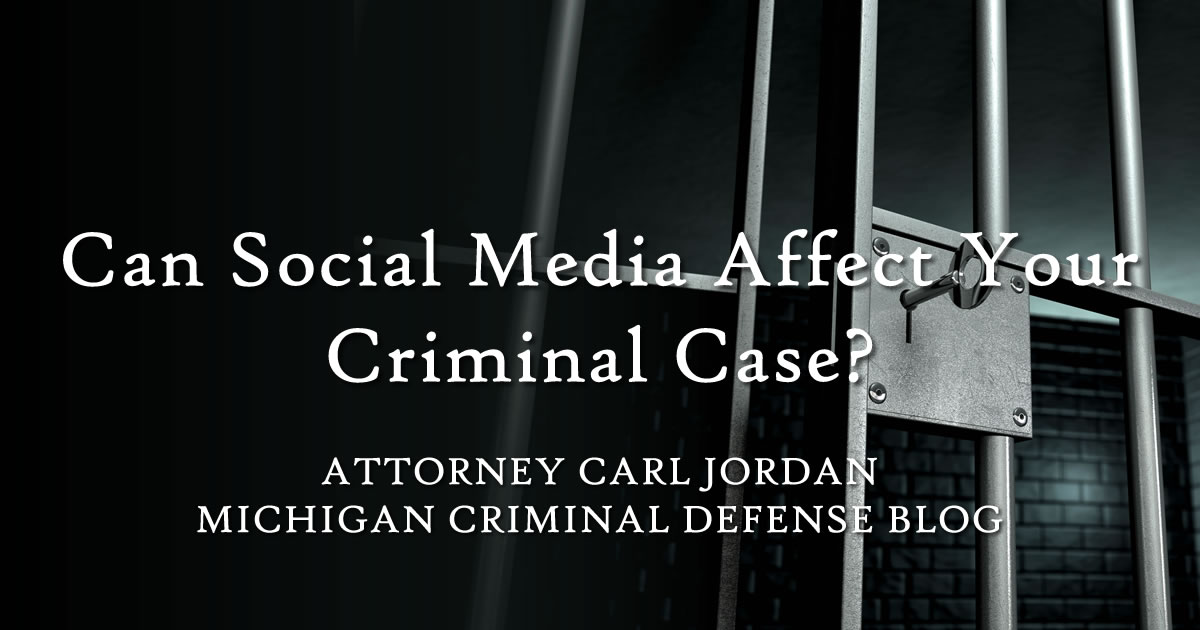ATTORNEY CARL JORDAN - MICHIGAN CRIMINAL DEFENSE BLOG
CAN SOCIAL MEDIA POSTS BE USED AS EVIDENCE OF A CRIME?
Over 250 police departments in Michigan have Facebook profiles. Law enforcement agencies use Facebook, Instagram, TikTok and other social media to improve police-community relations and create good will. However, their most common use of social media is criminal investigations.

Police use social media to share and receive information.
Police can post pictures of criminals, along with descriptions of crimes they allegedly committed and ask the community for help in finding the people.
Sometimes the police receive message via social media about people who committed crimes.
Police and prosecutors can gather evidence of who was in the neighborhood during a crime when people check in at bars or restaurants.
When a Massachusetts police department shared information with the community about a man accused of assault and asked for help to track him down, the post was shared by approximately 36,000 people. The man turned himself into police, likely due to the pressure from social media.
Police Use Social Media to Conduct Stings
Law enforcement often use social media for sting operations. For example, a law enforcement officer will pose as a drug dealer or a person looking for a prostitute. The scenario plays out and the suspect is quickly arrested.
A popular sting operation used by police to catch predators looking to have sex with children begins with an officer going on the internet and pretending to be a young child. The child/officer goes to a chat room and makes an introduction like, “13 year old girl wants new friends.” When people respond to the add, the child/officer engages in chats with them. Gradually, a predator becomes overt and starts sending signals to the child/officer that leads to a meeting for sex. When the predator shows up, he is arrested.
Police Use Social Media for Criminal Investigations
In one case cited by CNN, people bragged on social media about thefts they committed. A police investigation ensued, and enough evidence was gathered on social media to arrest 70 people for gang-related offenses. The locational feature on social media helped police track down the perpetrators.
In another case of social media use by law enforcement, The New York Daily News reported a Florida man posted pictures of himself with a gun and cash on Instagram. An investigation ensued and he was hit with 142 felony charges.
When the Philadelphia Police Department posted a surveillance video of a group of males using gay slurs and beating two men and causing serious injuries, a Twitter user found the alleged perpetrators through social media. Three suspects were charged with the crime.
Charged With a Crime? Using Social Media Can Harm Your Case.
If you have been charged with a crime, you should assume that police are combing through your social media accounts and taking screen shots. They are looking for anything that can be used as evidence of your activity in committing a crime. They are searching for information to corroborate a witness account. They are looking for information to discredit a defendant’s statements. They may also find evidence of intent to commit a crime, which can lead to additional charges. They will look through your friend network to determine criminal associates. They will look at every post or picture that you “liked.”
If you have been charged with a crime, you should stay off social media. Don’t log in. But don’t delete anything either. You could be charged with tampering with evidence.
-